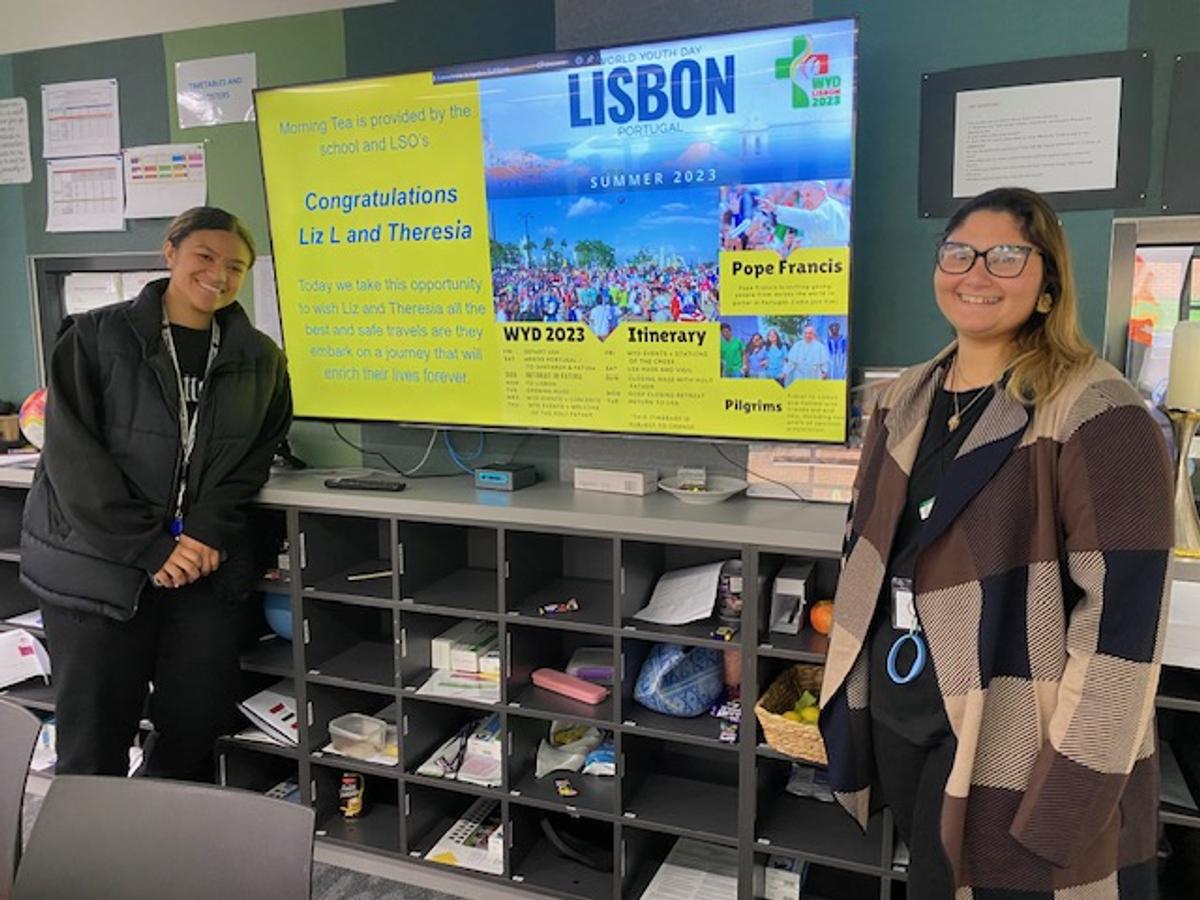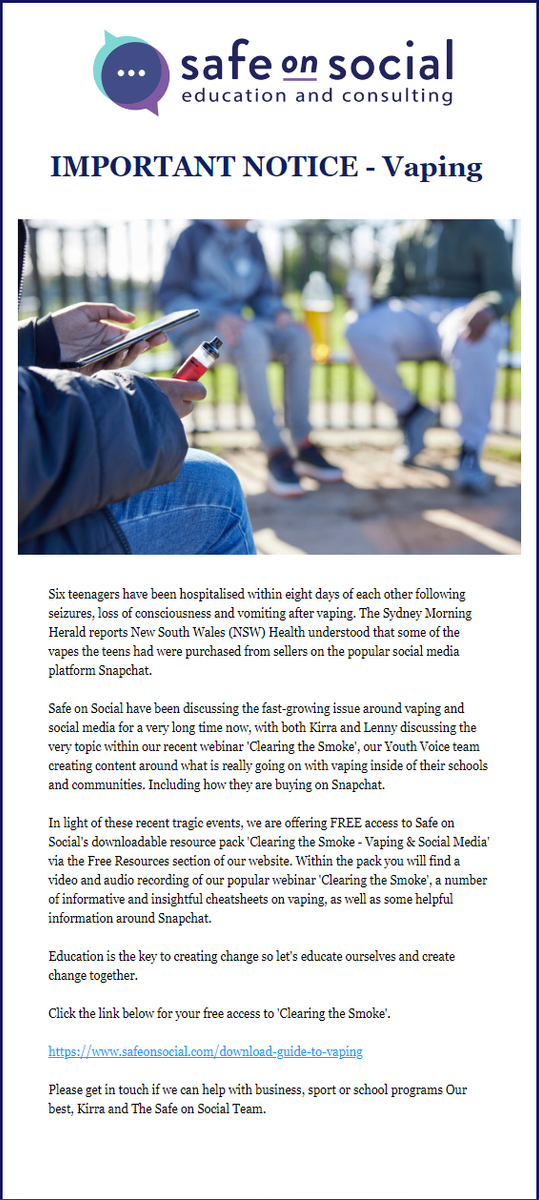RE and Wellbeing News
Messages from Mr Andrew Butler

RE and Wellbeing News
Messages from Mr Andrew Butler


Term 2 Year Six Mini Vinnies are very proud to announce that we raised $481 on PJ Day!
All the funds have been sent to Catholic Missions to support those in need.
We are very proud of our Mini Vinnie Term 2 Year Six Leaders and we thank the St Agatha's Community for supporting us while having fun dressing up in our PJs!
We have created an awareness of Catholic Social Justice while also raising money for those in need. Thanks to all the students and staff for joining in the fun too!
____________________________________________________________________________
Members of St Agatha’s staff Liz L and Theresia are going to WORLD YOUTH DAY. We pray that their trip is faith filled and exciting as they represent St Agatha’s at this special Catholic event! Travel safely and we cannot wait to hear about your experience!


________________________________________________________________________________
The Sacrament of First Holy Communion will be celebrated in Term Three for students in Year Four or above who have been baptised and received the Sacrament of Reconciliation. Please note the dates below for the program and sacrament dates.
PARENT- CHILD WORKSHOP
Wednesday 9th August at 5.00pm, 7.00pm or Thursday 10th August at 7.00pm
Note: Parents and child need to attend only one session
CEREMONY
Sunday 3rd September at 2.00pm
Sunday 10th September at 2.00pm
________________________________________________________________________________


NED’s Mindset Mission is a positive behaviour incursion visiting our school on Wednesday 9th August!
A world-class performer takes our students on a 45-minute journey filled with storytelling, illusions, yo-yo tricks and humour.
NED’s message and memorable friends inspire students, promote academic achievement, and support our school goals and a positive mindset.
NED will become a positive role model at both school and at home.
NED stands for:
Never give up
Encourage others
Do your best
A yo-yo is both a mindset tool and tangible reminder of NED’s message. While learning, children will make mistakes, try again, & improve.
Read more at www.MindsetMission.com/yoyos.
_______________________________________________________________________________
My youngest daughter, now 9, has recently been watching a cartoon with a cyclops in it. This naturally energetic and confident child is now terrified every night at bedtime – the cyclops are coming!
Another of my children has always had an anxious disposition. She feels a little bit of anxiety about most things most of the time. It’s typically low-level anxiety, but from time to time it can be paralysing.
Each of these anxiety situations is different. One is based on “state anxiety” or feeling anxiety just now about a specific situation. The other is based on “trait anxiety”, or feeling anxiety as a general characteristic.
Anxiety situations can be founded on rational fears (like heights), or irrational fears (like the cyclops). But anxiety, whether state or trait, rational or irrational, requires kind and compassionate responses.
It doesn’t matter whether you have a general predisposition to anxiety or not, we all have something that makes us feel anxious. It might be giving a speech in public, or driving in the city at peak hour, or starting a new job. In those moments, what would you want from the people around you? What would you want your partner, trusted friend, or even your own parents to say to you?
“Nothing bad is going to happen, stop worrying. You’ll be fine.”
“Driving at peak hour is the same as driving any other time. I don’t know why you’re worried about this.”
“Stop telling me how worried you are about this new job, you should just be grateful instead.”
Doesn’t feel good, does it?
Dismissing the problem with statements like “You’ll be right. There’s nothing to worry about.” doesn’t help. Instead, they leave our kids feeling misunderstood and wronged. It can leave them feeling like they’re incompetent! Plus, they feel as though no one understands them in their worries, and that they’re left alone to face them.
Denying the problem doesn’t work either. We often think that reassuring our kids that “There’s no such thing as cyclops” would surely help. Yet never in the history of people has anyone who is anxious and emotional responded to logic by saying, “Good point. I am being silly. Thanks for getting me back on track.” When we deny their reasons for being anxious, we are in essence telling them that their feelings about the situation aren’t valid. Again, we trample their sense of competency. And we hurt the relationship.
Lastly, when we show our disapproval of their anxiety by telling them “Stop worrying”, “Stop being silly”, or even “If you keep this up I’ll give you something to really be worried about”, we use our power to threaten and intimidate. This doesn’t decrease anxiety, instead it makes them more anxious – about the cyclops, the exam, the dark, and about us!
Instead of dismissal, denial, and disapproval, what our kids need from us when they’re feeling anxious is acceptance and affirmation. This doesn’t mean we agree with them. And we don’t need to take their worries away. What they need is our support and encouragement to give them the confidence to face their worries themselves.
“Something about this is making you worried. I believe you.”
“I get worried sometimes too. Can you tell me more about what is making you worried?”
“This is hard for you. I’ll be right here with you.”
When we accept that our child is worried about something and let them know that whatever it is, we understand that it’s a real worry for them, we give them the confidence to know that they have a trusted adult to support them. We aren’t doubting them or telling them that their problem isn’t real. Instead, we’re telling them that they can count on us to listen to them without judgement.
When we affirm that we have experienced worries and anxiety too, we give them the courage to share openly with us what is causing their anxiety.
When we agree that whatever they’re going through is hard, we show that we empathise with their emotions. We give them the assurance to know that they don’t need to experience these feelings of anxiety alone.
Once our children feel heard, seen, and validated, they’ll be better prepared to make an action plan to help them face their worries. Maybe they’ll make a cyclops repellent spray, or maybe they’ll ask for help to practice their speech. Whatever it is, allow them to formulate their own plan with your support, rather than swooping in and fixing their problems for them.
The quickest way to reduce the impact of strong emotions is to share them. When we allow our kids to share their anxiety with us, and we accept, affirm, and agree with them, their worries will begin to dissipate.
________________________________________________________________________________

